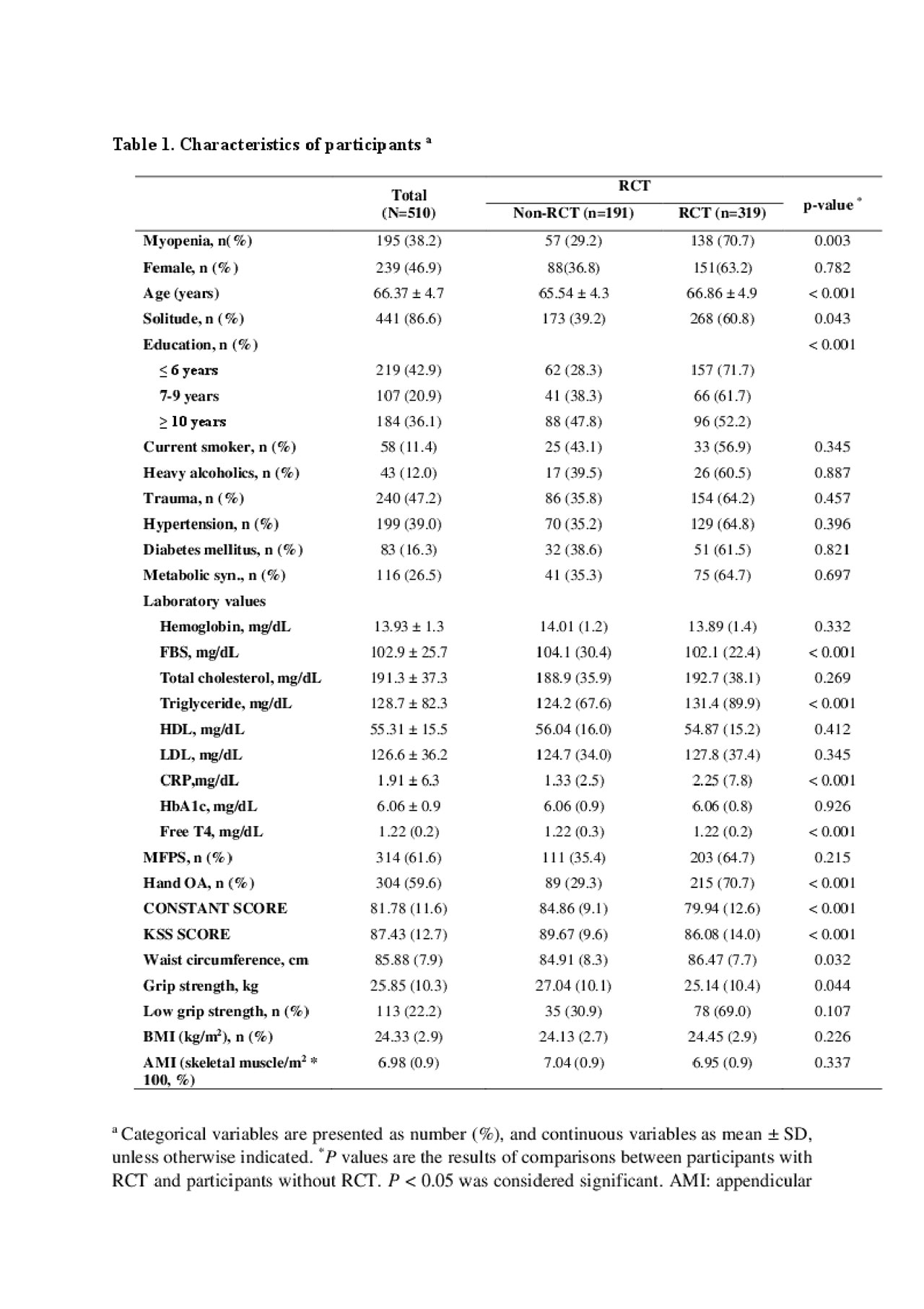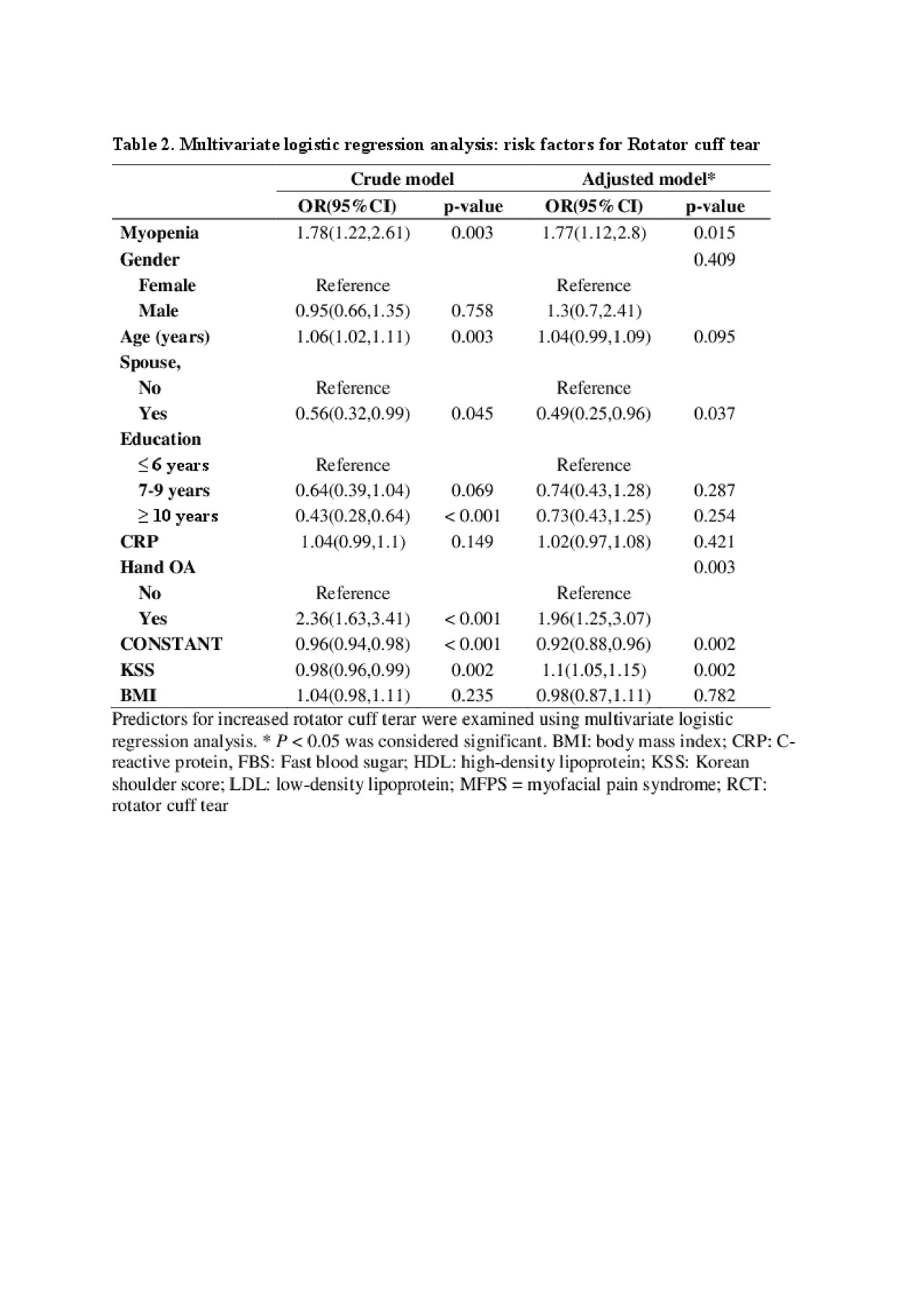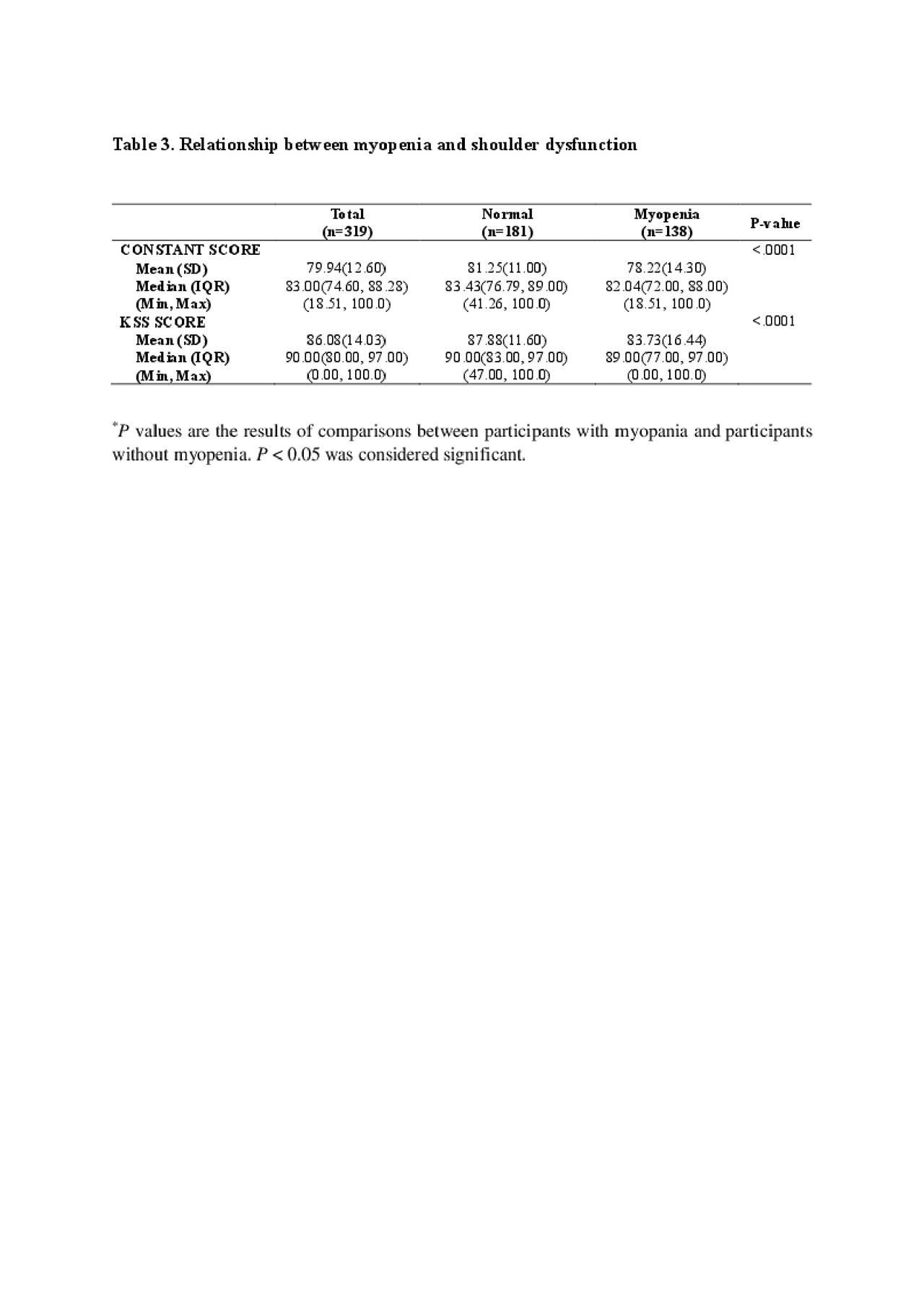Session Information
Date: Tuesday, November 12, 2019
Title: Orthopedics, Low Back Pain, & Rehabilitation Poster – ACR/ARP
Session Type: Poster Session (Tuesday)
Session Time: 9:00AM-11:00AM
Background/Purpose: Myopenia refers to decline in muscle mass with age, causing significant impairment in the ability to carry out normal daily functions. Rotator cuff tear (RCT) is a localized tendon disease, however, it is known to be related with systemic inflammation. The aim of this study is to determine whether there is correlation between myopenia and RCT in elderly people. In addition, we investigate the relationship between myopenia and severity of shoulder dysfunction.
Methods: Using data from NAMGARAM cohort which consisted of a group of people living in three rural communities in Korea, 510 participants who were ≥ 60 years and who underwent bioimpedance analysis, magnetic resonance imaging of shoulder, and completed shoulder function questionnaire such as Korean shoulder score (KSS), Constant Shoulder Score (CSS) were enrolled. Myopenia was defined according to the criteria set by the Asia Working Group for Sarcopenia (7.0 kg/m2 in men and 5.7 kg/m2 in women). RCT was diagnosed by MRI
Results: The prevalence of RCT was 62.5 % (n = 319). Multivariate logistic regression analysis showed myopenia (OR 1.77, 95% CI 1.12-2.8), hand osteoarthritis (OR 1.96, 95% CI 1.25 – 3.07), and waist circumference (OR 1.05, 95% CI 1.01 – 1.1) were related with RCT after adjustment for age, education level, solitude, body mass index, grip strength, dyslipidemia, hand osteoarthritis, and waist circumference, and myopenia. Subgroup analysis among patients with RCT (n = 319), patients with myopenia showed more severe shoulder dysfunction (KSS, 83.73 ±16.44; CSS, 78.22 ± 14.30) than those of patients without myopenia (KSS, 87.88 ± 11.60; CSS, 81.25 ± 11.00, P < 0.001). These results remained after multivariate analysis.
Conclusion: Myopenia is an independent risk factor of RCT and it is related to severe shoulder dysfunction. Keeping skeletal muscle mass is important to maintain shoulder function.
To cite this abstract in AMA style:
Cheon Y, Suh Y, Kim M, Park K, Lee S. Myopenia Is an Independent Risk Factor for Rotator Cuff Tear and Shoulder Dysfunction in Elderly People : Data from NAMGARAM Cohort [abstract]. Arthritis Rheumatol. 2019; 71 (suppl 10). https://acrabstracts.org/abstract/myopenia-is-an-independent-risk-factor-for-rotator-cuff-tear-and-shoulder-dysfunction-in-elderly-people-data-from-namgaram-cohort/. Accessed .« Back to 2019 ACR/ARP Annual Meeting
ACR Meeting Abstracts - https://acrabstracts.org/abstract/myopenia-is-an-independent-risk-factor-for-rotator-cuff-tear-and-shoulder-dysfunction-in-elderly-people-data-from-namgaram-cohort/



